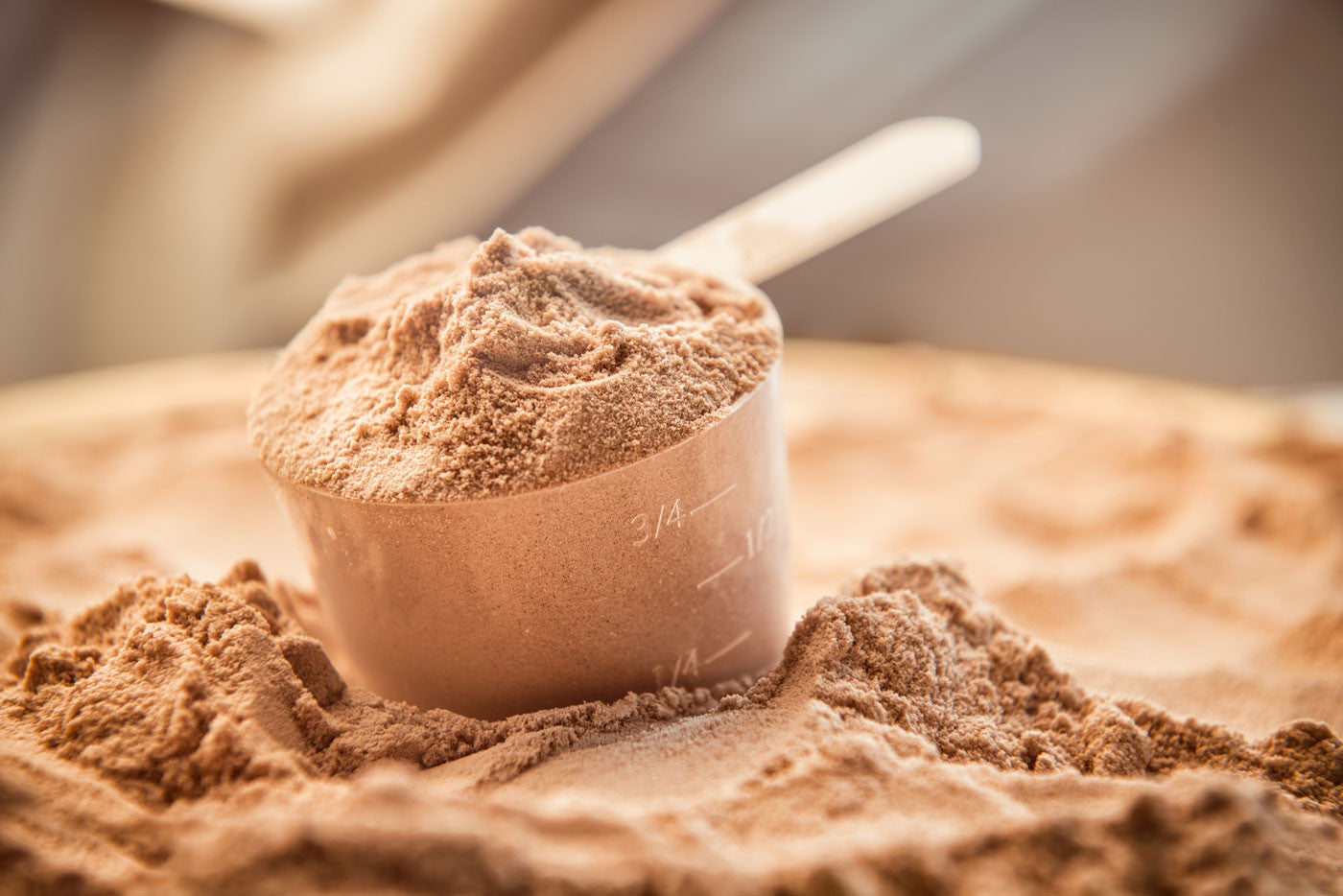The Facts About Whey Protein

Here is the lowdown on whey protein. There are many different types of whey protein available on www.grillafitness.com so make sure you do your research choose one that suits you! Whey Protein where does it come from? Whey is left over when milk is coagulated during the process of cheese production, and contains everything that is soluble from milk after the pH is dropped to 4.6 during the coagulation process The protein in cow's milk is 20% whey protein and 80% casein protein Why is whey protein so important for atheletes? During a heavy weights session your muscles are forced into protein breakdown, with the body splitting the amino acids into energy or using them to synthesise new protein. Following training, to promote muscle growth this exercise-induced protein breakdown needs to be turned around to be positive – taking on extra protein is how you can do it. To ensure mucsle growth when training, you need to ensure that your body absorbs more protein than has been caused to break down during training. How much Whey should I take? research studies have identified that the upper limit for protein ingestion should be 2g per kg of body weight. Above this there is no evidence of further benefit to muscle growth. For an 80kg individual, the upper intake should be 160g protein per day to aid muscle growth. The different forms of Whey There are basically three major types of whey protein. Each reflects a different degree of filtering and processing. From the least processed to the most processed, the types of whey are: whey protein concentrate, whey protein isolate, and whey protein hydrolysate. Whey protein concentrate goes through minimal processing. As a result, it's often much cheaper than other forms of whey, making it a good choice for those on a budget. Think of it as the difference between drinking pure orange juice or orange juice from concentrate... Whey protein concentrate is made with gentle filtration processes known as micro- and ultrafiltration. These processes create a supplement that is around 70-80 percent protein, with the remainder being carbs and fat. These processes also retain most of whey's beneficial peptide fractions, which are small particles of protein that perform various functions in the body. For example, whey peptides provide helpful antioxidant benefits and support immune function. Whey protein isolate (WPI) is more protein-packed than concentrate. Isolate is made with longer filtration times or additional types of processing, such as cross-flow microfiltration or ion-exchange chromatography. These fancy methods basically make a more protein-packed powder. With less remaining carbs and fat...this also means less lactose which is great for people who are lactose intolerant Protein hydrolysate has special application in sports medicine because its consumption allows amino acids to be absorbed by the body more rapidly than intact proteins, thus maximizing nutrient delivery to muscle tissues. It is faster to asborb than other forms of protein, bacause it is effectively partially digested (broken down) during the production process. As the production is more intense than the other forms of whey, this means that this type of whey is more expensive to buy. When should i take it? The two most important times to consume whey protein are 15-30 minutes before your workouts and within 30 minutes after your workouts,this is due to whey's speedy digestion rate. Providing a fast stream of amino acids to muscle tissue before, during, and immediately after resistance training promotes max muscle growth. Whole-food protein sources like chicken breast, eggs, fish and beef won't digest fast enough to be beneficial during these critical times. Before weight training, take about 10-20 grams of whey protein to enhance muscle strength, increase endurance, and decrease muscle breakdown. After your workouts, go with 20-40 grams of whey to enhance muscle recovery and boost muscle protein synthesis. You should also consider taking 20-40 grams of whey protein as soon as you roll out of bed. Breaking down protein causes the body to burn more calories than if it were breaking down a card, so this will aid weight loss. Taking 20-40 grams before bed with skimmed milk will ensure that your body has all the protein it requires and does not go into a ''catabolic state'' which could cause muscle to break down and with it your well earned GAINS!






